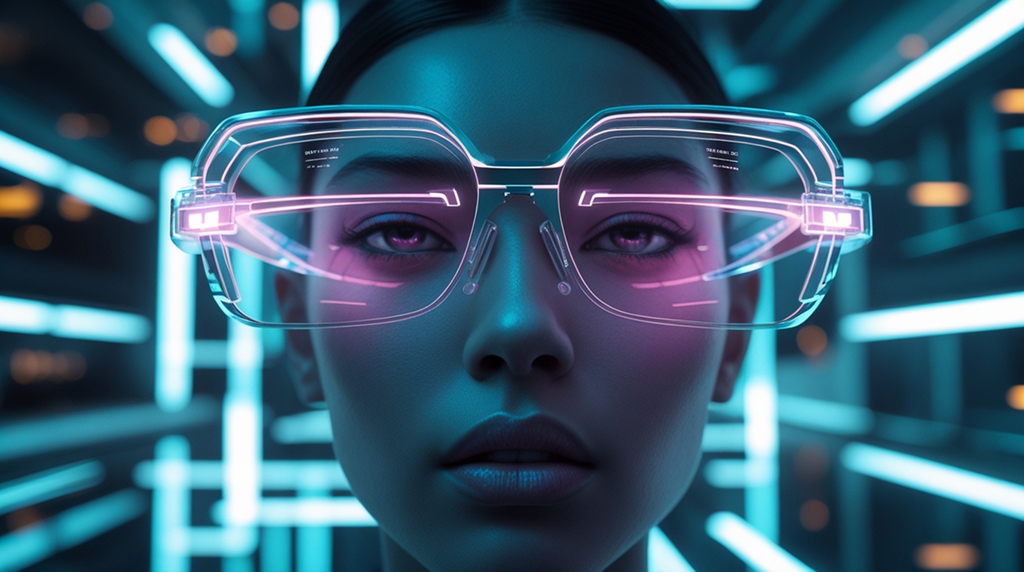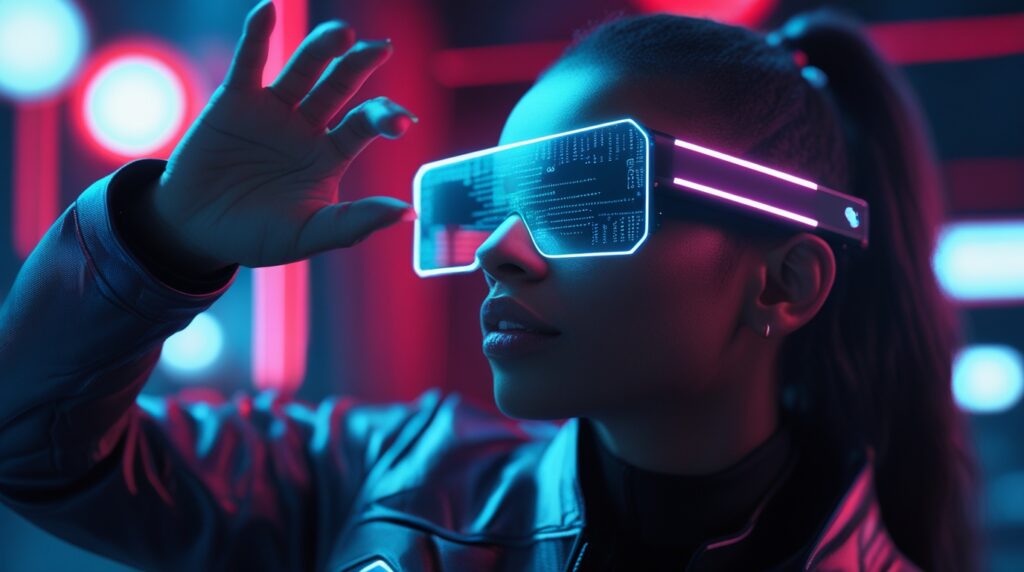Introduction
“Meta AR Glasses 2025 are being hailed as Meta’s boldest leap into the future of technology. Mark Zuckerberg’s big bet on AI-powered augmented reality was meant to redefine how we interact with the world—blurring the lines between digital and real life. After years of development and billions invested, the promise of sleek, futuristic smart glasses remains alluring. Yet, the reality feels far more complicated. Demo glitches, design hurdles, and user experience challenges have raised doubts about whether Meta’s vision can truly deliver. The question now isn’t just about fixing bugs—it’s about whether Meta AR Glasses 2025 can live up to the hype and shape the next era of immersive technology.”

The Grand Promise vs. Glitchy Reality
Remember the hype? Meta’s promise wasn’t just another gadget. We were talking about a device that’s supposed to seamlessly blend digital information with our physical world – imagine instant translations appearing over a foreign language, or directions overlaid onto your street view, all without pulling out your phone. Zuckerberg himself has painted a picture of a future where these glasses are as ubiquitous as smartphones. But what we’ve seen so far? Less like a sci-fi dream, more like a beta test gone sideways. The gap between ambition and execution is vast, leaving many wondering if this tech is truly ready for prime time.

Demo Disasters & Design Flaws
“Let’s be blunt: the early demos haven’t exactly wowed the crowd. Instead of sleek, futuristic interactions, we’ve seen awkward stumbles and glitches that suggest the tech is far from polished. Think ‘crisis’ rather than ‘innovation.’ Reports from within Meta and leaked videos often reveal a clunky interface and a user experience that leaves much to be desired. This isn’t just a PR problem; it highlights fundamental design and engineering challenges. Microsoft’s HoloLens also faced similar issues, showing this isn’t unique to Meta, but the stakes here are higher. Billions of dollars are on the line, and early impressions matter in this cutthroat AI hardware race.”

Why This Matters: Beyond the Hype
“This isn’t merely about Meta’s stock price, though that’s certainly a factor. The challenges here run deeper, touching on core technological hurdles:
- Technical Complexity: It’s insanely tough to build smart, powerful AI into tiny, lightweight glasses that look normal. We’re talking about miniaturizing processors, optimizing battery life, and creating seamless optical displays that don’t make you look ridiculous. The hardware isn’t quite there yet.
- User Acceptance & Social Norms: There’s a massive social hurdle. People aren’t comfortable with devices that constantly record or project information in public spaces. Privacy concerns, ‘glassholes’ controversies from a decade ago – these issues haven’t disappeared. The tech needs to integrate into our lives, not disrupt our social fabric.
- The ‘Killer App’ Dilemma: What’s the indispensable reason to wear these every day? Beyond novelty, the actual ‘killer application’ that justifies the cost and social awkwardness is still elusive. Until that exists, adoption will remain limited.”

The Bigger Picture: A Broader AR/AI Race
“Meta isn’t alone in this race. Apple, Google, and even startups are all pouring resources into augmented reality. But the common thread is that no one has truly cracked the code yet. Everyone wants to be the first to create a device that’s not just functional, but genuinely useful. Zuckerberg’s vision of a spatial internet, where AR glasses replace smartphones, remains the ultimate goal. But the slow progress suggests the entire AR market is facing a significant technological and social bottleneck. This isn’t a Meta-specific failure, but a shared industry challenge to make AR truly accessible and indispensable.”

A Tech Lover's Take: Why the Stumbles Matter
“From where I sit as a tech enthusiast, these repeated stumbles are more than just a bad product launch; they’re a cautionary tale for the entire industry. Meta’s approach often feels like they’re trying to force a future rather than organically building towards it.
When you look at companies like Apple, their success often comes from solving problems users have, not problems companies invent. Meta’s AR push, while ambitious, seems to be chasing a vision without fully understanding the immediate, practical applications or the real-world social implications. Smooth tones, natural textures, and a clean, professional finish are great for visuals, but the underlying technology needs to deliver on its promise. This current trajectory suggests a fundamental mismatch between grand ambition and ground-level user experience. It’s a clear signal that even with unlimited budgets, true innovation still comes down to solving real-world problems gracefully.”







2 Comments on “Meta AR Glasses 2025: Challenges, Innovations, and the Future of Augmented Reality”